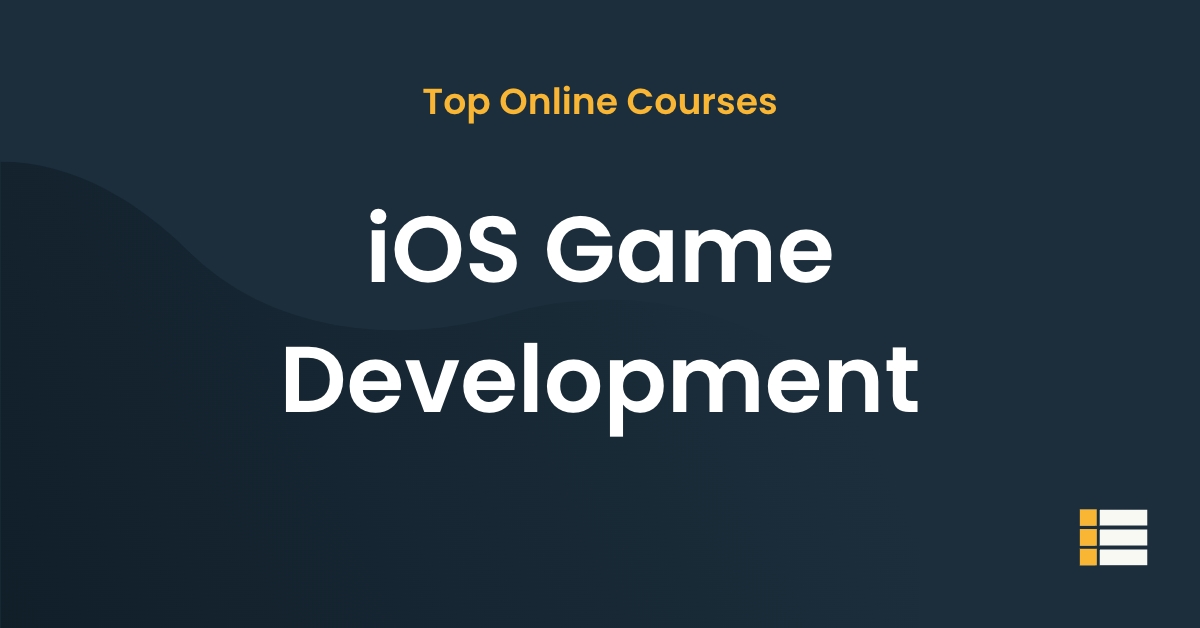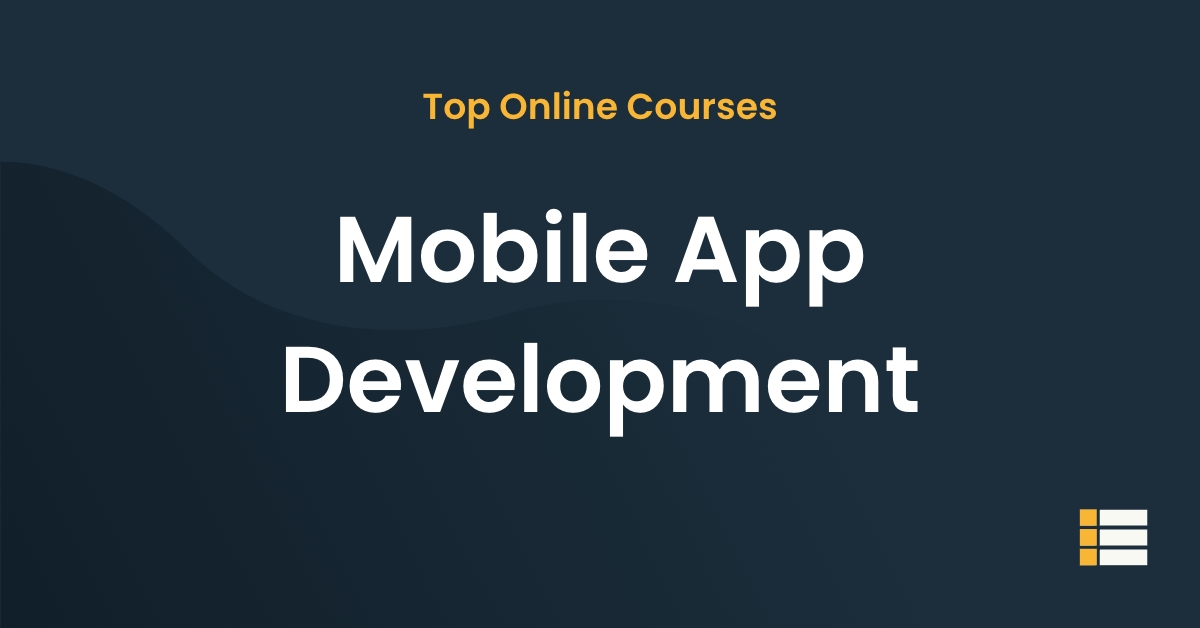If you’re looking for a way to get into mobile app development, React Native is a great option to consider.
Let’s dive into why React Native is such a great tool to learn and discuss the benefits you can get from mastering it.
Table of Contents
Learning React Native Online: A Student’s Guide
What is React Native?
React Native is a mobile app development framework that enables developers to build cross-platform mobile applications using JavaScript and the React library.
React Native was developed by Facebook and is used to create native apps for both iOS and Android platforms.
React Native is based on React, a JavaScript library created by Facebook, and uses the same architecture as React, allowing developers to create rich user interfaces (UI) for mobile applications.
React Native allows developers to write code in JavaScript that is then translated into native code for both iOS and Android devices. This makes the code more readable and maintainable, as it can be reused across both platforms.
Additionally, React Native supports the use of React components, which are reusable pieces of code that can be used to easily create UIs.
React Native is an open-source framework, meaning that anyone can access the source code and use it for their own projects. It is also easy to integrate with existing code, and developers can easily customize the code to fit their own needs.
React Native has many advantages over other mobile app frameworks, including its ability to create native apps for both iOS and Android using the same codebase, its support for React components, its ease of integration with existing code, and its open-source nature.
Additionally, React Native offers a wide range of features and tools for developers to use in their apps, including the ability to use third-party components, the ability to debug apps, and a live reload feature that allows developers to see their changes as they are made.
With its support of React components and its easy integration with existing code, React Native is an excellent choice for developers who want to create high-quality mobile apps.
Learning Resources for React Native
Getting started with React Native can be a bit daunting. Fortunately, there are plenty of resources available to help developers learn and become proficient with the framework. Here, we’ll cover some of the best learning resources for React Native.
1. React Native Documentation and Tutorials: The official React Native documentation is the perfect resource for getting started with the framework. It contains comprehensive tutorials and guides, as well as detailed API references for each component. It’s a great starting point for any React Native project.
2. React Native Learning Resources on GitHub: There are a number of excellent learning resources on GitHub. From tutorials to sample code, you’ll find everything you need to get up and running with React Native.
3. React Native Books and Publications: Whether you’re just starting out or you’re already an experienced React Native developer, there are a number of books and publications available that can help you learn new techniques and best practices. Some popular titles include ‘React Native in Action‘, ‘Getting Started with React Native’, and ‘The Road to React Native’.
4. The official React Native certification from Meta (Facebook)on coursera is a popular choice and is a great way to demonstrate your skills.
5. React Native Video Tutorials: YouTube is an excellent resource for learning React Native. There are a number of great tutorials available, from fundamentals to more advanced topics.
6. React Native Community: The React Native community is an invaluable resource for learning React Native. From forums to Discord and Slack groups, there are plenty of places to get help and advice from experienced React Native developers.
What is the Job Market Like for React Native Developers?
React Native has a wide range of applications, from gaming and productivity applications to educational and healthcare applications, so job opportunities in the field of React Native are growing.
Those looking to build a career with React Native can find plenty of job opportunities in the market. In fact, according to the job market analysis site Indeed, React Native jobs have seen an increase of 21% in the past year.
The job market for React Native developers is diverse and has roles for both junior and senior developers. Junior developers can expect to work on projects that involve coding, debugging, and troubleshooting React Native applications.
Senior developers can expect to take on more responsibility, such as leading a team of developers, managing application releases, and coordinating with other departments.
Job postings for React Native developers range from full-time positions to freelance and contract roles.
Many employers are seeking React Native developers with experience in building cross-platform apps, JavaScript and React, and UI/UX design. React Native developers also have the opportunity to specialize in certain areas, such as developing mobile applications for the healthcare or education industries.
These roles may require additional certifications or training. The job market for React Native developers is growing, and the demand shows no signs of slowing down.
With the right skills and experience, React Native developers can find plenty of opportunities in the job market.
Challenges of Learning React Native
React Native is a great choice for developers looking to create applications that can run on both iOS and Android.
However, learning React Native can be a challenging process due to its complexity. Here are some of the challenges that developers may face when learning React Native.
- Navigating the Documentation: React Native has extensive documentation that is necessary to understand the framework thoroughly. The documentation can be difficult to understand for developers who are new to the framework and may require a lot of time and effort to get up to speed.
- Learning the Basics: React Native uses JavaScript and React, so developers need to be familiar with these technologies before they can begin developing with React Native. It can be a challenge to learn the basics of JavaScript and React quickly enough for development.
- Understanding Native Components: React Native allows developers to use native iOS and Android components in their apps. This is a great advantage, but it requires understanding native development in order to correctly utilize the components.
- Debugging: Debugging is always a challenge when developing an app and React Native is no exception. React Native provides some helpful debugging tools, but experienced developers may find the process time-consuming.
- Deployment: Deploying a React Native app can be a challenge. The process is not as straightforward as it is with native development and requires some knowledge of the platform’s deployment process.
These are just some of the challenges that developers may face when learning React Native.
With patience and dedication, developers will be able to overcome the challenges and become proficient in React Native.
What Projects Can You Build with React Native?
React Native allows developers to write code that can be used across multiple platforms.
That means you can build an app for both Android and iOS, without having to write two separate apps.
React Native also offers a variety of components and features that make mobile app development easier. So, what projects can you build with React Native? The possibilities are endless, as it’s a powerful and versatile framework.
Here are a few examples of projects you can build with React Native:
- Social Networking Apps: Social networking apps are hugely popular, so it’s a great option to use React Native for building one.
- E-commerce Apps: E-commerce apps are becoming increasingly popular, and React Native is a great option for building them. With React Native, you can create a beautiful user interface, as well as secure payment methods. You can also take advantage of the many components and features it offers, such as maps, geolocation, and push notifications.
- Games: React Native is also a great choice for building mobile games. It offers a variety of components and features for creating a fun and interactive gaming experiences, such as 3D graphics, motion sensors, and virtual reality.
- IoT Apps: Internet of Things (IoT) applications are becoming increasingly popular, and React Native is a great choice for building them. It offers features such as geofencing and geolocation, as well as push notifications and data storage. You can also take advantage of the various components and features it offers, such as Bluetooth and Wi-Fi connectivity.
As you can see, it is a powerful and versatile framework, and it can be used for a variety of projects. If you’re looking to build a mobile app, React Native is a great choice.
Frequently Asked Questions
What are the Prerequisites to learn React Native?
In order to learn React Native, it is important to have a working knowledge of JavaScript, HTML, and CSS. It would also be beneficial to have some basic knowledge of the React library, since React Native is based on React. Additionally, having a general understanding of mobile development concepts, such as user interfaces, navigation, and performance, will be helpful in understanding React Native. It is also recommended to have some experience with the command line, version control systems, and build tools such as Xcode and Android Studio.
Is React Native easy to learn?
Yes, React Native is generally considered an easy language to learn. It follows the same syntax as React and is built on the same core principles, making it relatively simple to pick up for developers with a background in web development. The React Native documentation is clear and concise, and the platform provides many helpful tools like the Expo development environment which makes it easy to get up and running quickly. Overall, React Native is an easy language to learn and most developers can become familiar with it in a short amount of time.
How long does it take to learn React Native?
React Native is quite easy to learn, especially if you have prior experience with JavaScript. It typically takes beginner developers around a week to learn the basics of React Native, such as the syntax and components. With more moderate to advanced development experience, you could expect to be comfortable with React Native within a couple of days. Additionally, with the wide selection of online tutorials and resources available, you can learn React Native at your own pace, and as deeply as you want to.
What is React Native good for?
React Native is a powerful tool for developing mobile applications that can be deployed across multiple platforms, such as iOS and Android. It is powered by a Javascript codebase and provides a framework that enables developers to quickly create high-performance, reliable, and interactive user interfaces. React Native is good for building cross-platform mobile applications that are both performant and maintainable, while also allowing developers to reuse code across multiple platforms. It is also great for developing apps with native look and feel that can be customized to suit the needs of any project.
Is React Native same as react JS?
No, React Native is not the same as React JS. React Native is a framework that is used to build cross-platform mobile applications using JavaScript and React. React Native uses native components to create a real mobile app, whereas React JS is a JavaScript library used to create web applications. React Native also has access to the device’s native APIs, while React JS does not.
Is React Native better than flutter?
React Native has a larger community and larger code base, meaning it offers more pre-built components and libraries to use in your project. On the other hand, Flutter is relatively new, and its popularity is growing quickly due to its fast development cycle and hot reloading capabilities. Flutter also offers a unique, attractive design language and a powerful set of widgets. Ultimately, the best way to decide which technology is better for your project is to take into account the different features each technology offers and compare them against the specific needs of your project.
Is React Native Java or JavaScript?
React Native is a JavaScript-based framework that was created by Facebook to help developers create mobile applications. It uses native components to create views, handle device access, and manipulate platform features, and is not dependent on any particular language. It's possible to use both Java and JavaScript with React Native, but React Native itself is neither Java nor JavaScript.
Conclusion
In conclusion, React Native is an extremely powerful and versatile tool for developing mobile applications. React Native provides developers with an easy-to-learn, cross-platform approach to creating applications for iOS, Android, and the web.
With the resources available online, learning React Native from the comfort of your own home is easier than ever.
By taking the time to learn and practice the basics, anyone can create beautiful, efficient mobile applications without having to learn a whole new development language.

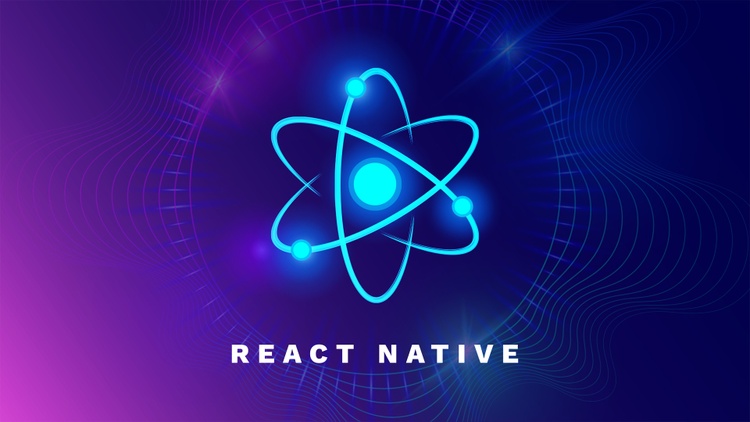
 Online course by
Mosh Hamedani
Online course by
Mosh Hamedani
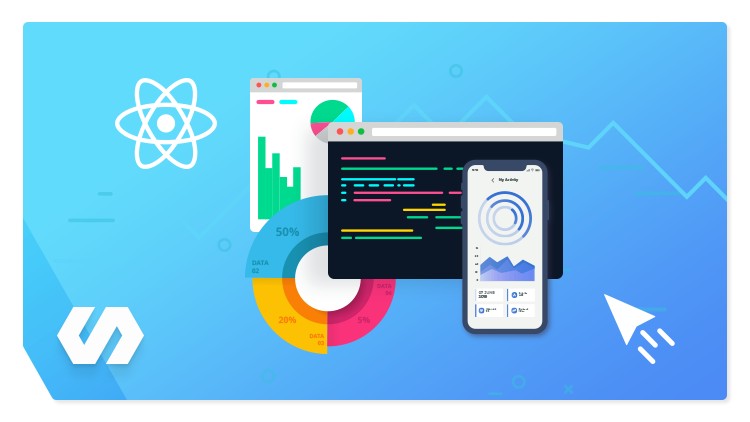
 Online course by
Stephen Grider
Online course by
Stephen Grider
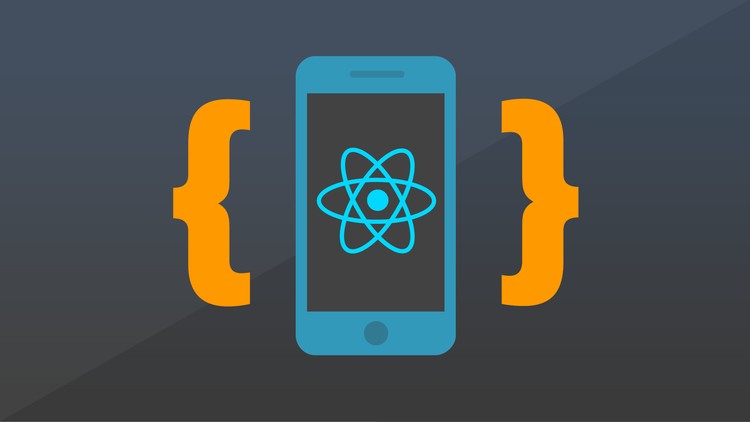
 Online course by
Academind by Maximilian Schwarzmüller
Online course by
Academind by Maximilian Schwarzmüller
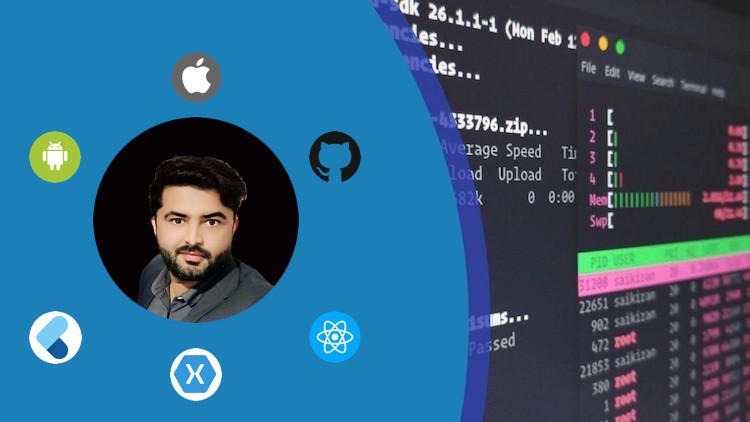
 Online course by
The Apps Firm
Online course by
The Apps Firm

 Online course by
Antoni Skup
Online course by
Antoni Skup
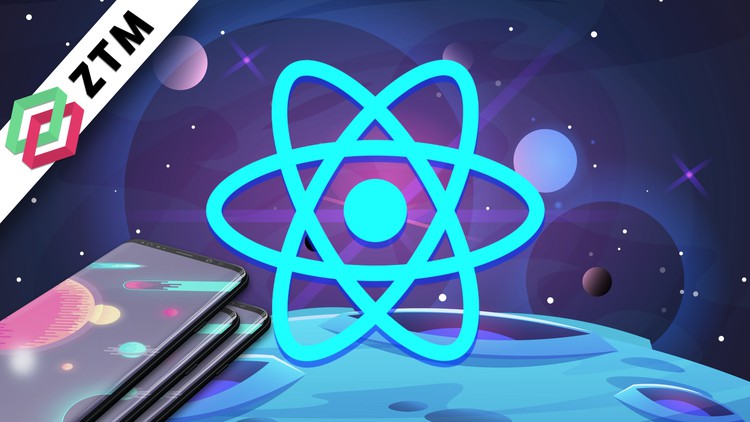
 Online course by
Andrei Neagoie
Online course by
Andrei Neagoie

 Online course by
Omar Maksousa
Online course by
Omar Maksousa
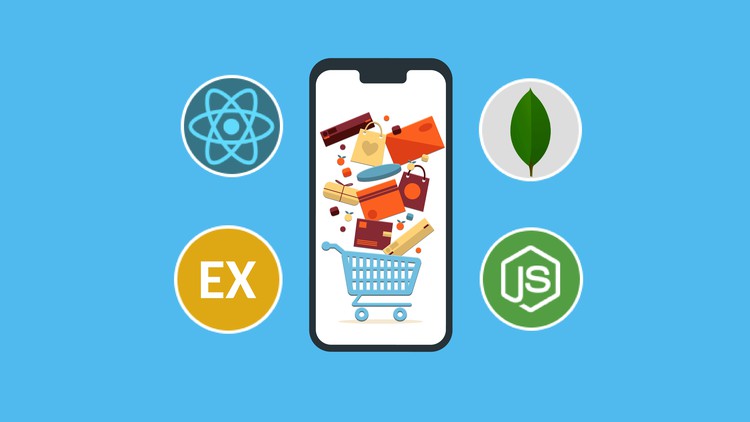
 Online course by
Tiago Pereira
Online course by
Tiago Pereira
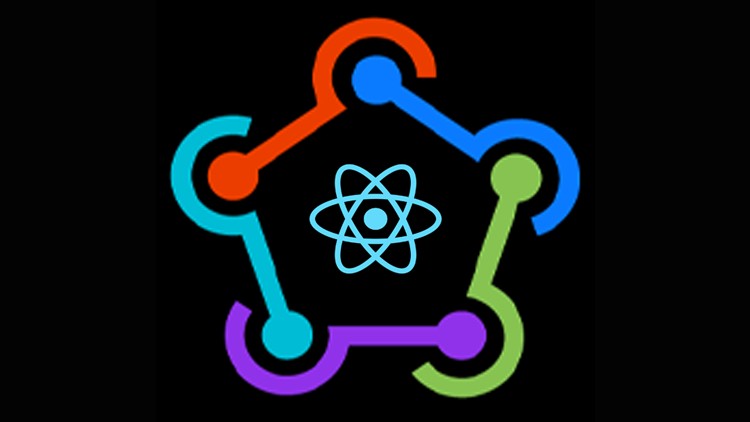
 Online course by
Cory McAboy
Online course by
Cory McAboy

 Online course by
Stefan Hyltoft
Online course by
Stefan Hyltoft

 Online course by
Coding Revolution
Online course by
Coding Revolution

 Online course by
Ryan Dhungel
Online course by
Ryan Dhungel

